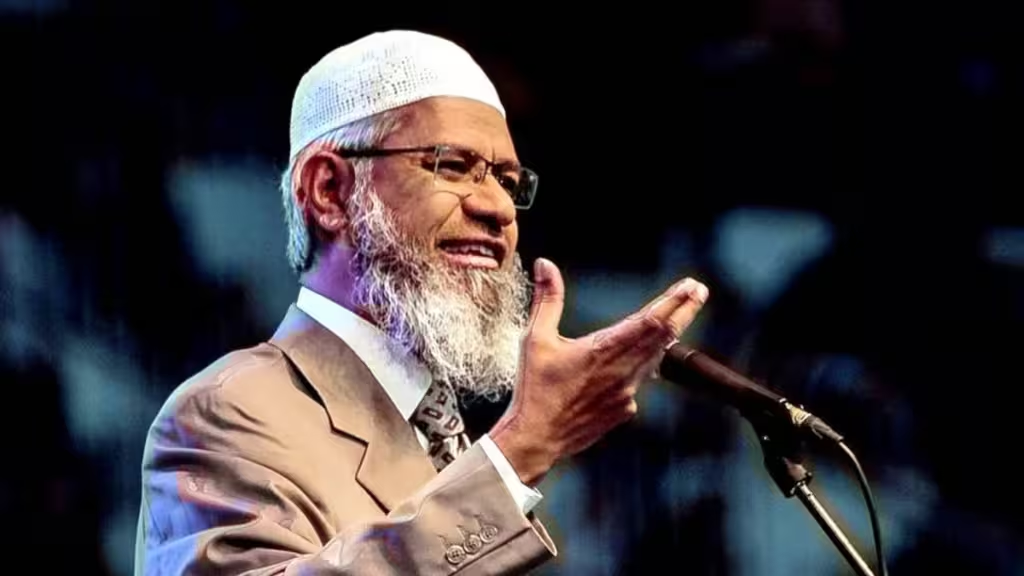Certain anti-Muslim factions within the Indian press have launched a campaign asserting that Dr. Zakir Naik’s meetings at Lahore’s Badshahi Mosque were actually with members of the militant group Lashkar-e-Taiba.
These allegations come as Dr. Naik embarks on a visit to Pakistan, where he is set to meet high-ranking government officials and participate in public events until October 28.
Pro-Modi media outlets have amplified their negative narrative, claiming Dr. Naik interacted with specific individuals linked to Lashkar-e-Taiba, including Muzammil Iqbal Hashmi, Muhammad Haris Dahr, and Faisal Nadeem.
To lend credibility to their accusations, these sources circulated a doctored video that supposedly shows Dr. Naik embracing members of the group during his mosque visit, further escalating the controversy surrounding his trip.
Dr. Zakir Naik, an internationally renowned Islamic scholar, is currently in Pakistan delivering speeches at various gatherings. His visit, which began on September 30 at the invitation of the Pakistani government, includes engagements in major cities like Islamabad, Karachi, and Lahore.
Despite the academic and cultural focus of his trip, the scrutiny from Indian media has overshadowed his activities, raising questions about the motivations behind these allegations. The narrative surrounding Dr. Naik’s visit highlights ongoing tensions and differing perceptions of Islam and its scholars in the region.
As Dr. Naik continues his tour, the reactions from both media and political circles will likely shape the discourse around his influence and the broader implications for interfaith relations in South Asia.
This situation exemplifies how media portrayal can impact public perception and diplomatic relations amid sensitive geopolitical contexts.


